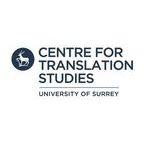Weekly sessions | Friday 2pm - 3:30pm | 04 October - 06 December 2024
A ten-part course presented by the Centre for Translation Studies of the University of Surrey.
Cut through the hype and counter the pessimism. Develop a fresh perspective on the use of AI in translation and learn strategies to manage its impact on your profession and business.
To complement its master’s degrees in translation and in interpreting, besides their open webinars and online lectures, the Centre for Translation Studies of the University of Surrey is now offering the translators’ community this in-depth course, addressing the key themes that translators need to understand to make AI a powerful tool in their work.
It aims to provide answers to common and difficult questions about AI in translation, empower translators to find their own answers to questions, and enable a proficient and effective use of AI.
The academic experience of the instructors guarantees an independent, non-commercial view on all matters related to AI, so, rather than offering lists of solutions that have hardly been tested, helps participants develop a knowledgeable and critical view on the subjects discussed.
I was impressed by the professors' knowledge of the topic.
The course has five modules, each comprising two 90-minute weekly sessions.
05 & 12 June 2025 | 2pm - 3:30pm
Introduction to AI and how interpreters can benefit from AI
- ???
19 & 26 June 2025 | 2pm - 3:30pm
AI assistance during interpreting assignments
- ????
03 July 2025 | 2pm - 3:30pm
Terminology extraction for interpreter preparation
- ????
10 July 2025 | 2pm - 3:30pm
LLMs to support interpreters
- ???
17 July 2025 | 2pm - 3:30pm
Customising ASR with the help of a domain specific corpus
- ???
At the end of each session there will be a short quiz to help you assess your understanding, plus suggested reading materials, to complement the session and deepen your knowledge.
There will also be a post-course assignment based on a translation task involving AI. This is designed to help you analyse the usefulness of AI tools in translation and to reflect on your view of how you can use AI. A course completion certificate will be provided, together with individual feedback on the final assessment. An attendance certificate is provided to those that may prefer not to complete the assignment.
This course has been thought-provoking and gives me a fresh perspective on my profession in a world buzzing with AI.
By completing the course, you will be able to:
- Understand the main concepts related to AI, Large Language Models (LLMs) and Neural Machine Translation
- Recognise different applications and uses of AI tools in translation
- Identify processes that reduce the risk of using language AI
- Acknowledge the role that creativity plays in AI and translation
- Understand the impact of AI on translation business models
- Develop strategies to manage the impact of AI on translation business models, reducing risk and promoting value for clients
- Develop a fresh perspective on the use of AI in translation.


